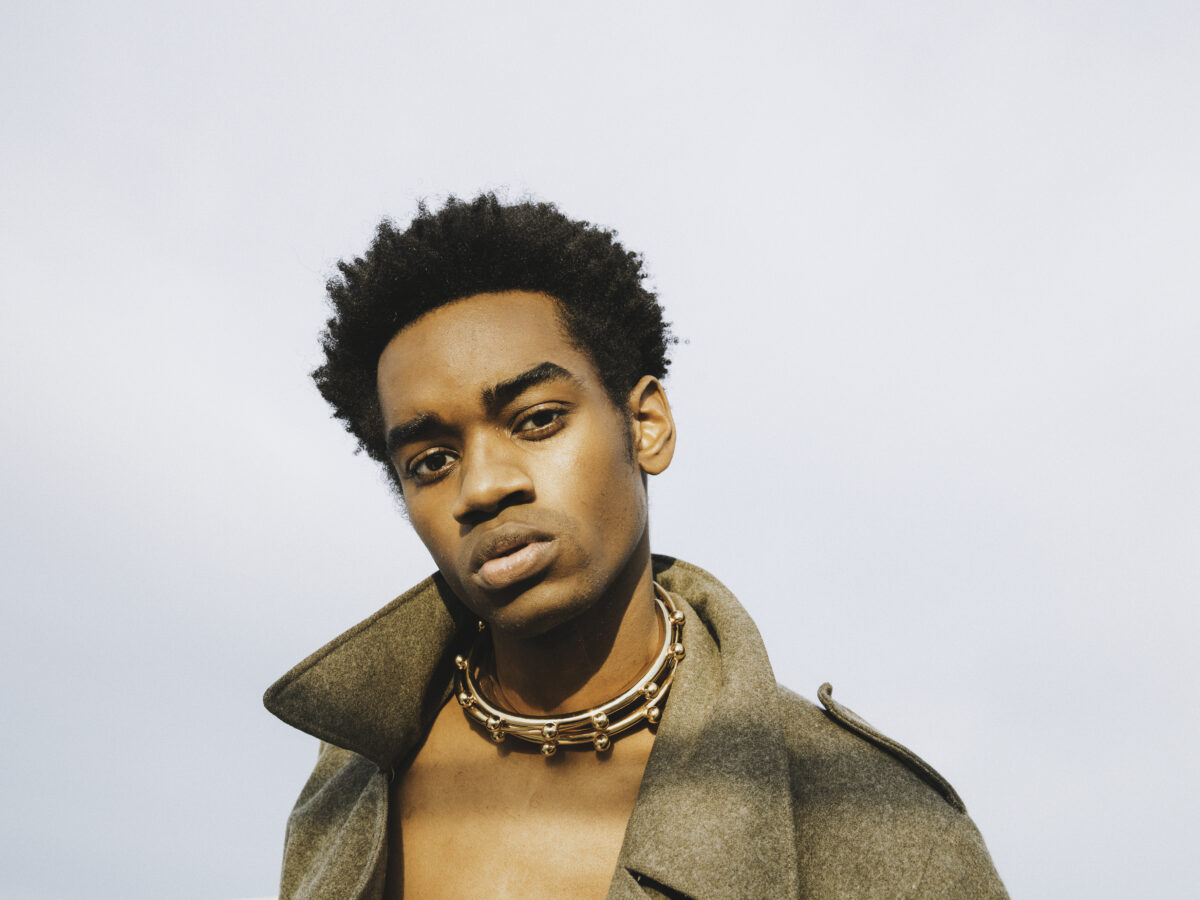Jameel Mohammed

When designer Jameel Mohammed ’13 was featured in the September issue of Vogue in 2018, he rushed to buy a copy of the magazine at the newsstand. The fashion bible’s dazzling write-up about his luxury jewelry line, Khiry, was, by all accounts, an industry triumph and a signal that he had “made it.”
Barneys New York department store was carrying his debut collection of gestural earrings, bold necklaces and sculptural rings — inspired by the ancient horned cattle of Central Africa — and A-list celebrities including Michelle Obama, Alicia Keys and Gabrielle Union were donning his pieces. Privately, however, there was dissonance. The 24-year-old often paced his crammed New York City apartment worrying about how to pay the rent. In fact, purchasing the $10 Vogue, he says, triggered an overdraft on his bank account. Mohammed’s parents sent him a Greyhound bus ticket and suggested he return home to Chicago. The move gave the artist, who began sketching his future fashion line in Abbot Hall during his upper year at Exeter, a restorative pause.
Now, a year later, Mohammed is back in Gotham launching a second jewelry collection and Négritude, a digital platform celebrating Black culture and artisanship around the globe. We spoke with him in the Harlem home studio he shares with five roommates about his invigorated vision for his brand and artistic life.
What was it like returning to live with your parents after all of the public success?
Honestly, I was dealing with so much unaddressed trauma and the head fake. Here I have [this magazine] and it has my face in it and it’s supposed to be the moment where your career transcends to the next level. And yet, I had no real stability in my world. I had to ask myself, “Is there actually a place for me in this industry?” The fact of the matter is that so many of these [fashion] businesses are rich-kid vanity projects that are oftentimes not profitable. I can get into Barneys and check the boxes if you map out the trajectory of a luxury fashion line. But no one tells you that they had a million dollars in the bank before they started. I thought, “I cannot play this game in the same way that they do.”
How did you change?
I began to reframe how I thought about luxury. Luxury is not a price point. It is about a perspective of depth, of craft, and building a community around those things. I am now experimenting with pricing and placement. I am also doing more custom-made pieces for private clients and expanding the pie of people who can participate.
How are you allowing for more participation?
[Négritude] is a means to create a sustainable and scalable community so that I, and a bunch of others, can produce art without having to tailor it. It’s inspired by the literary movement of the 1930s, ’40s and ’50s that celebrates Africa’s diaspora. … It features podcasts, interviews with artisans and also you can shop. It’s the Black luxury version of Goop’s business model — with Black themes, Black artisans and Black cultural producers. I want to explore how we balance cultural identity, Blackness, queerness, first-generation, third-culture kids, and African artistry around the world. It’s a way of creating actual commercial value around truth and truth-telling, and creating the infrastructure so that it can be happening 20 years from now.
— Sandra Guzmán
Editor’s note: This article first appeared in the fall 2019 issue of The Exeter Bulletin.


